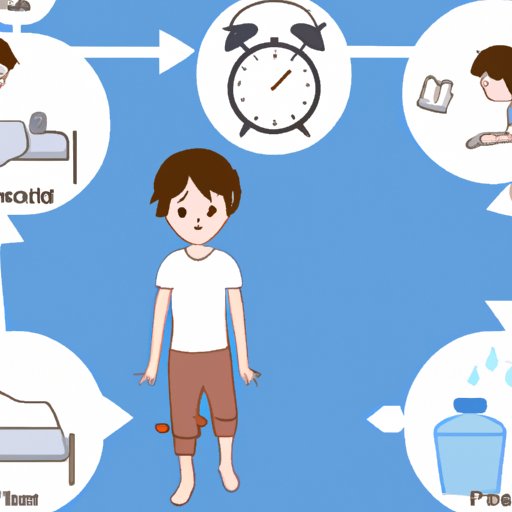Introduction
Bedwetting, or nocturnal enuresis, is a common problem that affects both adults and children. It can cause embarrassment, shame, and frustration, but there are steps you can take to help reduce the frequency of bedwetting and regain control over your bladder. In this article, we’ll explore some tips and strategies for how to stop wetting the bed.

Set a Regular Bedtime Routine
Establishing a consistent bedtime routine is one of the most effective ways to reduce bedwetting. Make sure to go to bed and wake up at the same time every day, even on weekends. This will help regulate your body’s internal clock and encourage better sleep quality, which can help reduce the risk of wetting the bed.
Before going to bed, make sure to use the bathroom and empty your bladder completely. You should also avoid activities that may stimulate your bladder, such as drinking fluids, playing video games, or eating snacks close to bedtime.
Limit Fluids Before Bed
Drinking too much fluid before bed can increase the likelihood of wetting the bed. Try to limit your fluid intake in the evening, particularly drinks that contain caffeine or sugar. These can be diuretics and can lead to increased urination during the night. Instead, drink plenty of water earlier in the day and cut back on fluids in the evening.
Use an Absorbent Mattress Protector
Investing in a waterproof mattress protector or sheet is a great way to protect your mattress from any accidents. Make sure to change sheets and mattress covers regularly to ensure they remain clean and dry. You can also try using an absorbent pad or mattress topper to help keep moisture away from the mattress.

Try Bladder Training and Scheduled Toileting
Bladder training is a technique that can help reduce the frequency of bedwetting by teaching your body when to expect urination. Try limiting the amount of time between bathroom trips and set alarms to remind yourself to go to the bathroom. This can help train your body to recognize when it needs to urinate.
Scheduled toileting is another technique that can help reduce bedwetting. This involves setting a schedule of bathroom breaks throughout the day and sticking to it. This can help remind your body to expect regular bathroom visits and reduce the risk of wetting the bed.

Talk to a Doctor About Medication Options
If these strategies don’t seem to be helping, it’s a good idea to talk to your doctor about medication options. There are several medications available that can help reduce the frequency of bedwetting. Your doctor can discuss the pros and cons of each option and help you decide which one is best for you.
It’s also important to consider other treatment options, such as cognitive behavioral therapy (CBT) or hypnosis. These therapies can help address underlying psychological issues that may be contributing to the bedwetting. Your doctor can provide more information about these treatments and refer you to a specialist if necessary.
Conclusion
Bedwetting can be an embarrassing and frustrating experience, but there are steps you can take to reduce its frequency. Establishing a consistent bedtime routine and limiting fluids before bed can help, as can investing in an absorbent mattress protector. Bladder training and scheduled toileting can also help, and if these strategies don’t seem to be working, talk to your doctor about medication options. With patience and persistence, you can regain control over your bladder and stop wetting the bed.


